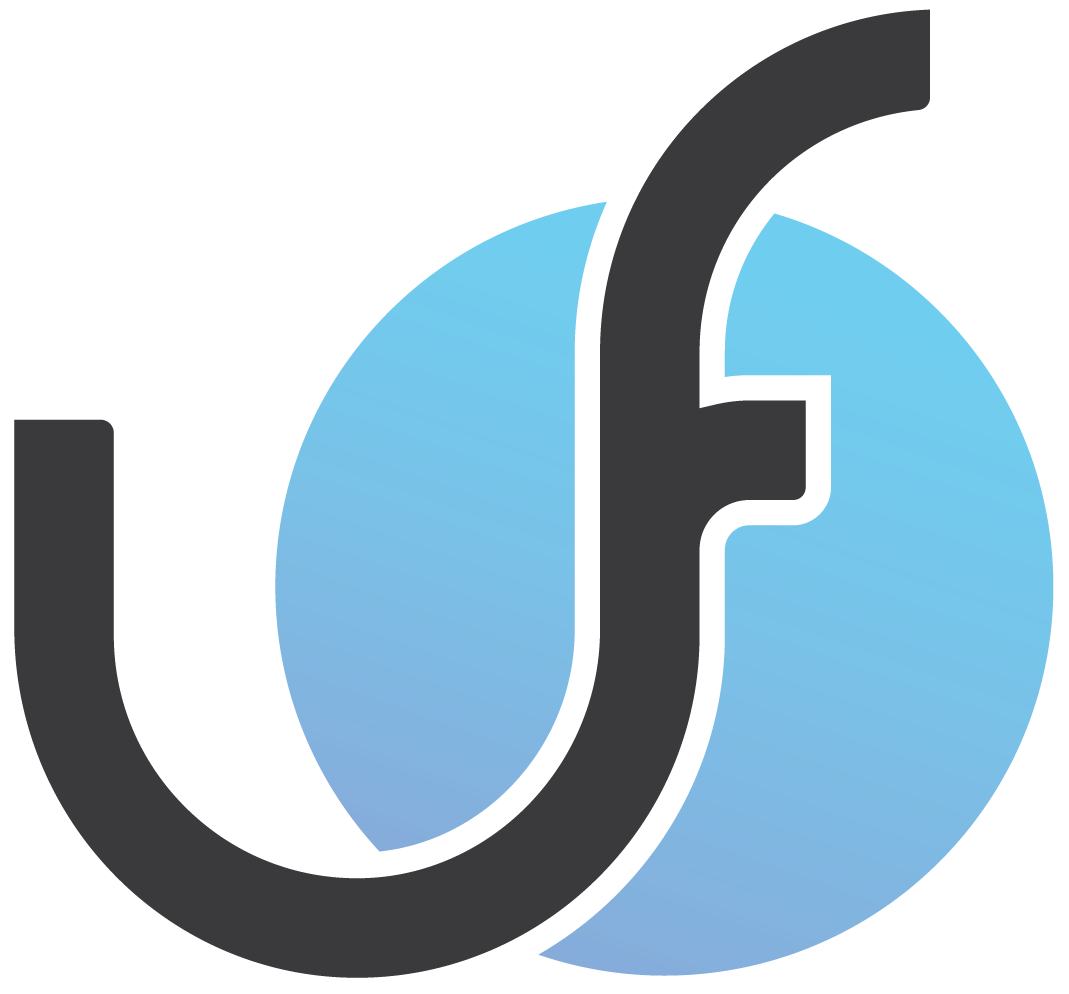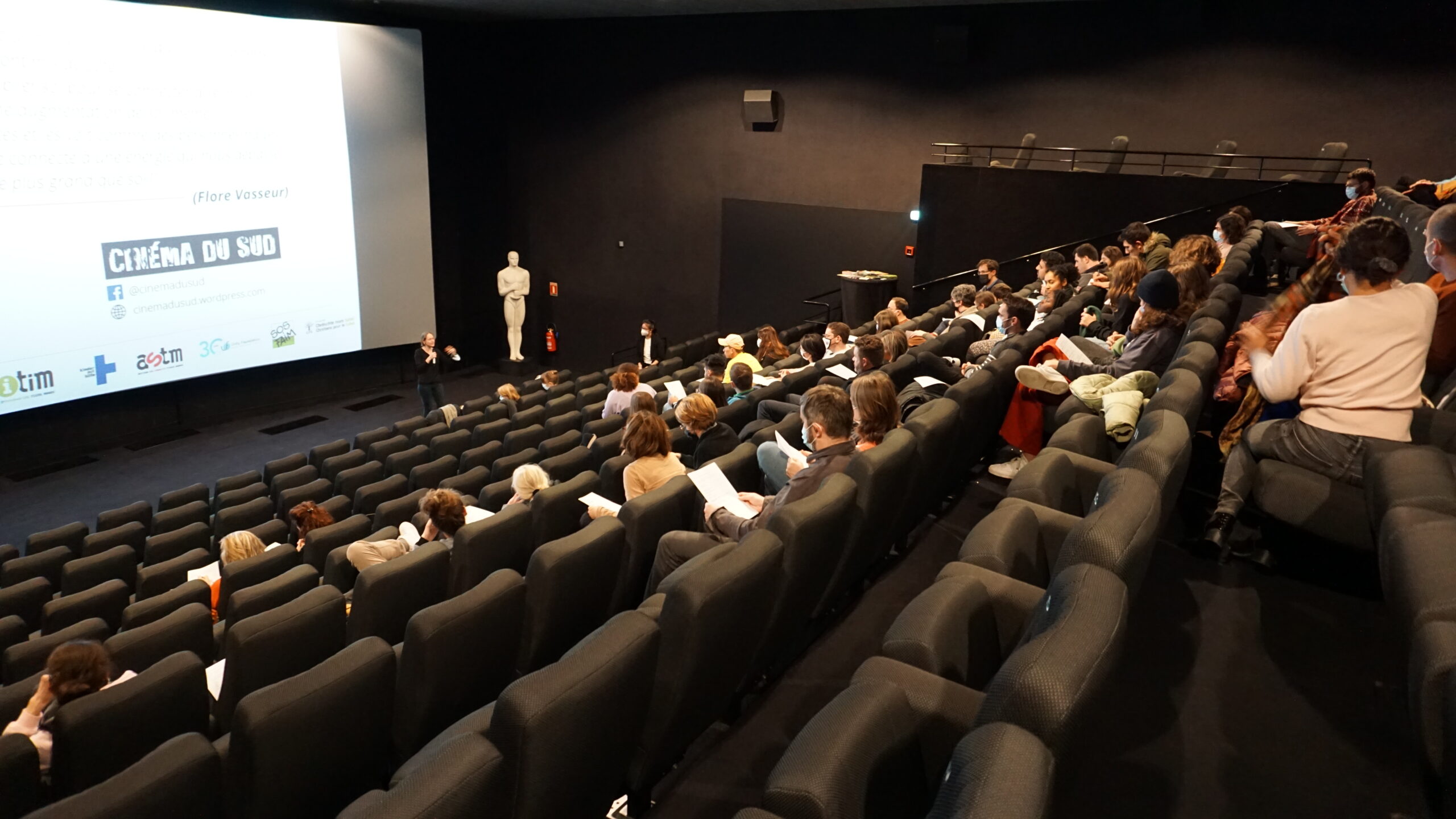
“Forget about yourself to connect to this ‘we’”, an unforgettable winter edition with “Bigger than us” to close the Festival du Cinéma du Sud 2021
10/12/2021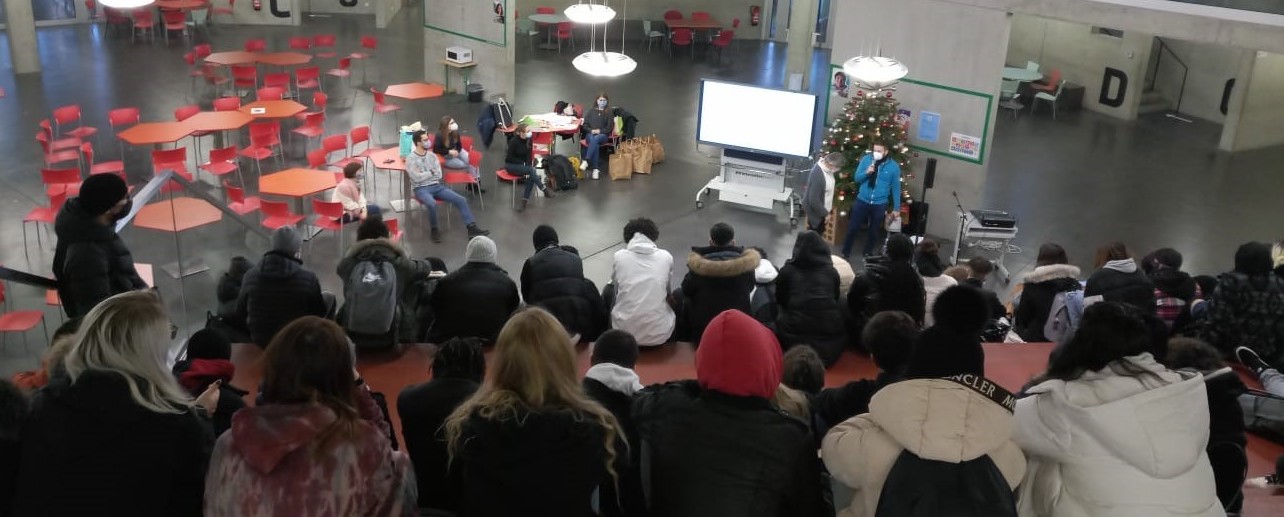
3 days of workshops with over 100 students at the National School for Adults
16/12/2021Three weeks of exchange and service around the world
During 3 weeks, between November 19th and December 3rd, Unity Foundation, in partnership with the European Business University of Luxembourg (EBU), conducted a series of workshops to conclude the year 2021.
In order to raise awareness among young people about the universal issues of development and education and to make them reflect on their capacities to act in order to participate in the improvement of their environment, UF had the opportunity to work for three weeks with students of EBU, a Luxembourg university offering online courses to students in Luxembourg and in Africa, Asia and Latin America.
After being welcomed by UF and EBU members in a video conference, the 80 students watched the film Mercy’s Blessing, which UF uses as the basis for many workshops. This story of a brother who is willing to sacrifice his education and his passion so that his sister can go to school, touched the students, who were then invited to interact with the director of the short film, May Taherzadeh, who was invited for the occasion.
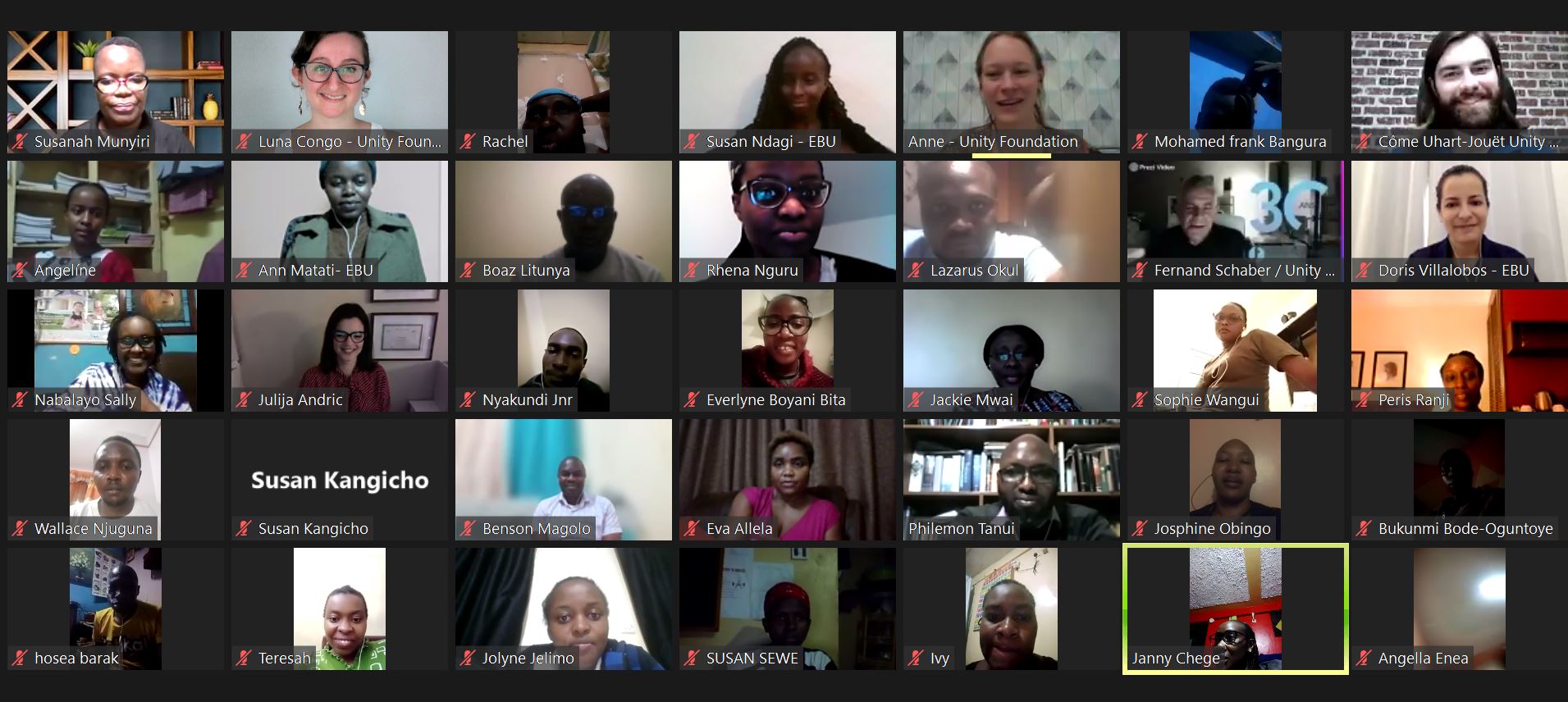
Students and facilitators together on Zoom.
Divided into groups and inspired by the story of the characters in the film, participants were invited to explore together several concepts such as sacrifice, privilege, the promotion of justice, the role of our education and equality between men and women. How can the privileges we possess be used to support and promote the progress of others? What are some of the forces in society that cause us to become passive or indifferent to the suffering of others, and how can we break free from them and promote different attitudes?
At the end of this first session, the students were invited to set up a service project in their community. Sometimes very simple, acts of service allow us to use our privileges, skills or talents to help one or more individuals. More than a simple action, it is a way to be of service to others and to create strong bonds of solidarity.
The idea of service projects inspired the students beyond our expectations. The participants all showed initiative, dedication, and creativity for this project, although sometimes considered unusual; as one participant shared, “The idea of an act of sacrifice had never ringed in my mind in the capitalist world we are in.” And yet, whether in their village or neighborhood, alone, with their children, or through an association, participants found a multiplicity of ways to serve around them. Some service projects were personal and short-term, others involved many people and lasted over time. Some cared for children, the elderly, the needy or the sick, others used their knowledge to teach and accompany young people in their studies or to find a job. Some also cared about the environment by planting trees. So many varied projects that show the power of individual actions and especially the joy that came out of it all!
Here are some examples of the service projects described by participants:
“I shared my skills of making Mahamris (it’s a swahili pastry) to Maureen. This imparted her with knowledge and a business idea. The end result was yummy.”
“I mobilized my fellow citizens in the need to do things selflessly for those in need. I managed to build a WhatsApp group of around 56 participants. We work towards helping our society in different forms.”
“I gave back to mother nature by planting trees in my street in Nairobi.”
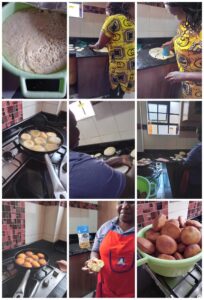
A participant shared her skill to cook mahamris to help a woman diversify her business.
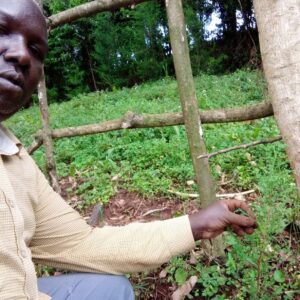
A participant planted 200 tree seeds in Nairobi.
During the second session, the participants were able to exchange on various themes, such as the importance of standing up for justice, redefining the role of education and working towards the abolition of double standards for girls and boys. The first discussions reminded us of the importance of being attentive to the sufferings of people around us, especially those that sometimes remain “silent” (discrimination, harassment, violence against children…). These discussions highlighted the importance of deconstructing certain learned norms and realizing the impact that our individual changes in attitudes and mentalities can gradually have on society as a whole.
Between the second and third workshop sessions, participants were invited to do a second service project, this time to spark conversations with those around them about the various topics discussed during the workshops. If they wished, they could use artistic means (texts, drawings, theater…) to convey their ideas. Some shared with their husbands, children, neighbors, friends, or colleagues on multiple themes related to the workshop, often about gender equality and the notion of privilege and responsibility. A participant shared: “Based on two discussions I had with my family of six, we realized that while we support the extended family, we have provided more support to the male than the female and hence we desire to balance this support.” Another participant shared a poem she had written entitled “Choice, there’s always a choice”. Another shared a drawing of her daughter, illustrating a discussion between the two of them. She said, “So after explaining the program and what we need to understand to my daughter, she reminded me of a lady we always meet on the way to school and she said that she will draw a picture of our engagement. So she drew this picture with the lady and her brother giving her something to take to her children.”
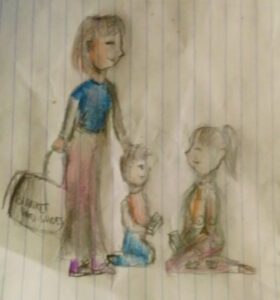
The drawing of a participant’s daughter.
In the third week, students reflected together on the principle of the oneness of humanity and its implications. Using different quotes, participants reflected on the analogy of society as a human body and on the need for cooperation, reciprocity, and unity in diversity for a society to be prosperous and just. One participant shared, “Just like body cells, we as human beings are expected to have symbiotic relationships.” Reflecting on the implications of this principle, another participant said, “Unity in diversity is key and this was demonstrated when the COVID-19 pandemic hit the world. The unity or oneness of humanity was tested and the only choice for humanity was unity.”
Finally, before receiving a certificate of completion of the workshop, participants were asked to complete an evaluation form for Unity Foundation to learn about the experience. Here are some of the learnings that participants took away from the workshops:
“To sacrifice myself for the betterment of other people and giving without expecting something in return.”“Education must be accessible to all and we have the obligation to support those in difficult situations.”
“Always bearing in mind even the small contribution one makes is a contribution towards making the world a better place to be.”
“Choices are always available, service is a way of life, operating from the place of human linkages and oneness as opposed to the silos that constantly threaten to separate us, e.g. race, class, economic status etc. Taking action and speaking up even when I feel outnumbered or alone – that shouldn’t stand in my way; also it’s not about the size of the projects but that action starts and progresses incrementally.”
“We are all one, diversity is beautiful, unity is strength and selflessness and compassion is a way of a life.”

A word cloud representing participants’ responses to the question “What were some of the highlights from the workshops for you?” in the evaluation form.

A graph representing the topics that students wish to explore in the future.
These three workshops created a very enriching space for discussion that led to a proliferation of acts of service in several regions and countries. The inherent nobility and power of the human being to transform and contribute to a better world became evident through the exchanges between these participants and we all felt refreshed and hopeful that each of us, in our own way, can make a difference.
It was also the first collaboration for Unity Foundation and EBU and we hope it will continue in the years to come!
